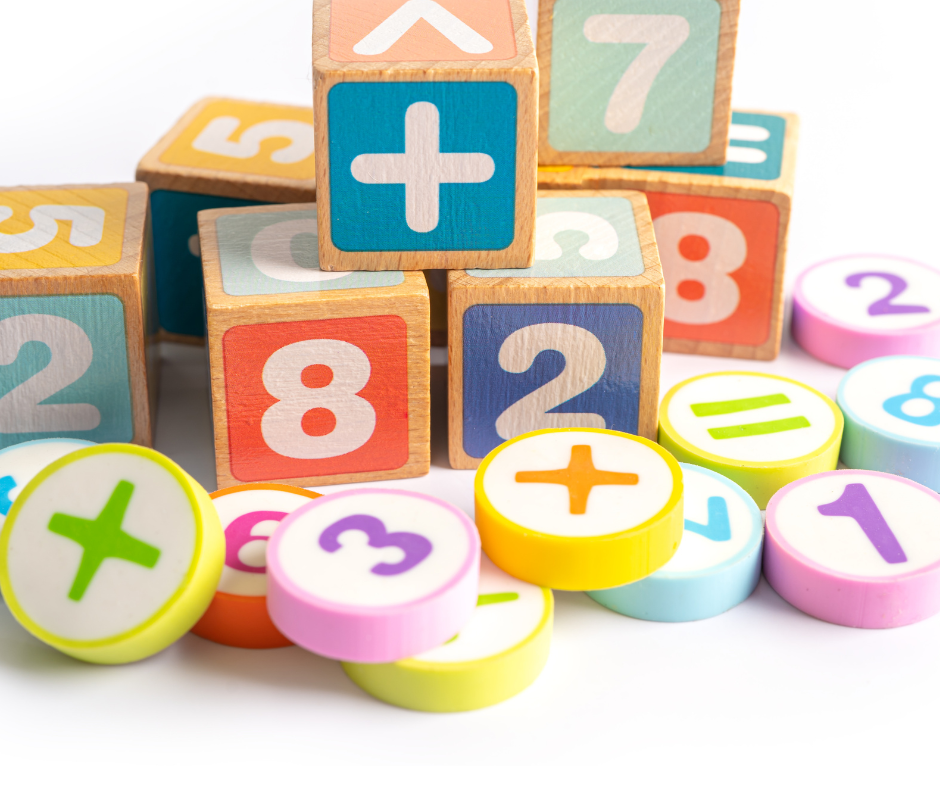
Hungarian Numbers to Learn Hungarian Language
Share
Can you do proper counting in Hungarian?
Hungarian is indeed known for its unique grammar and vocabulary, often intimidates new learners. However, you can begin your journey with one of the most essential components: numbers. Understanding and mastering Hungarian numbers will not only help you navigate daily life—whether you’re shopping, telling time, or understanding dates—but will also give you the confidence to engage in basic conversations.
Did you know that Hungarian uses a logical structure for its numbers, making them easier to learn than they might first appear?
Let’s dive into the Hungarian number system and start unlocking the language together!
The Basics: Numbers 0-10
Here are the foundational Hungarian numbers you'll need to know:0 - nulla [nul-la]
1 - egy [edj]
2 - kettő [ket-tö]
3 - három [ha-rom]
4 - négy [nedj]
5 - öt [öt]
6 - hat [hot]
7 - hét [hayt]
8 - nyolc [nyolts]
9 - kilenc [ki-lents]
10 - tíz [teez]
Pro Tip: Practice these numbers daily until you can recall them instantly. Try counting objects around you in Hungarian throughout the day.
Listen to our podcast on how to say the numbers from 1-10 in Hungarian 🎤🎧
Building Blocks: 11-20
Hungarian uses a logical system for numbers 11-19. Simply take the word for ten (tíz) and add the single digit:
11 - tizenegy [ti-zen-edj]
12 - tizenkettő [ti-zen-ket-tö]
13 - tizenhárom [ti-zen-ha-rom]
14 - tizennégy [ti-zen-nedj]
15 - tizenöt [ti-zen-öt]
16 - tizenhat [ti-zen-hot]
17 - tizenhét [ti-zen-hayt]
18 - tizennyolc [ti-zen-nyolts]
19 - tizenkilenc [ti-zen-ki-lents]
20 - húsz [hoos]
Tens and Beyond
The Hungarian system for larger numbers follows a similar pattern:
30 - harminc [hor-mints]
40 - negyven [nedj-ven]
50 - ötven [öt-ven]
60 - hatvan [hot-von]
70 - hetven [het-ven]
80 - nyolcvan [nyolts-von]
90 - kilencven [ki-lents-ven]
100 - száz [saaz]
For numbers in between, simply combine the tens with the single digits:
21 - huszonegy [hu-son-edj]
45 - negyvenöt [nedj-ven-öt]
78 - hetvennyolc [het-ven-nyolts]
NOTE: 'en', 'on', 'an' help out with vowel harmony, so 21 will be not huszegy but rather huszonegy.
Numbers from 1-100
Here are the Hungarian numbers from 1 to 100 in word form, separated by commas, can you count in your head?
egy, kettő, három, négy, öt, hat, hét, nyolc, kilenc, tíz, tizenegy, tizenkettő, tizenhárom, tizennégy, tizenöt, tizenhat, tizenhét, tizennyolc, tizenkilenc, húsz, huszonegy, huszonkettő, huszonhárom, huszonnégy, huszonöt, huszonhat, huszonnégy, huszonnyolc, huszonkilenc, harminc, harmincegy, harminckettő, harminchárom, harmincnégy, harmincöt, harminchat, harminc hét, harmincnyolc, harminckilenc, negyven, negyvenegy, negyvenkettő, negyvenhárom, negyvennégy, negyvenöt, negyvenhat, negyvenhét, negyvennyolc, negyvenkilenc, ötven, ötvenegy, ötvenkettő, ötvenhárom, ötvennégy, ötvenöt, ötvenhat, ötvenhét, ötvennyolc, ötvenkilenc, hatvan, hatvanegy, hatvankettő, hatvannégy, hatvanöt, hatvanhat, hatvanhét, hatvannyolc, hatvankilenc, hetven, hetvenegy, hetvenkettő, hetvenhárom, hetvennégy, hetvenöt, hetvenhat, hetvenhét, hetvennyolc, hetvenkilenc, nyolcvan, nyolcvanegy, nyolcvankettő, nyolcvanhárom, nyolcvannégy, nyolcvanöt, nyolcvanhat, nyolcvanhét, nyolcvannyolc, nyolcvankilenc, kilencven, kilencvenegy, kilencvenkettő, kilencvenhárom, kilencvennégy, kilencvenöt, kilencvenhat, kilencvenhét, kilencvennyolc, kilencvenkilenc, száz.
Ordinal Numbers
All ordinal numbers in Hungarian typically end with “dik,” which should be quite memorable. However, there are two notable exceptions: the word for "first" is “első” (instead of “egyedik”) and "second" is “második” (instead of “kettedik”).
Here are the first 10 ordinal numbers for reference:
1st – első
2nd – második
3rd – harmadik
4th – negyedik
5th – ötödik
6th – hatodik
7th – hetedik
8th – nyolcadik
9th – kilencedik
10th – tizedik
It's essential to understand that the vowel preceding the suffix “dik” can vary in specific instances, such as in “negy–e–dik” and “öt–ö–dik.” However, this variation shouldn't create any confusion for you. If you find yourself uncertain about how to form an ordinal number, just take the base number you wish to convert and append “dik” to it. This approach will yield the correct ordinal form since the vowel serves primarily as a phonetic bridge, facilitating a smooth transition between consonant sounds.
Cardinal Numbers
Cardinal numbers are used for counting and identifying quantity. They are fundamental in everyday conversations.
Examples:
-
Three apples: három alma
-
Five books: öt könyv
-
Ten cars: tíz autó
Phone Numbers
When expressing phone numbers, Hungarian speakers could say each single digit individually or the two digit number pairs. To call a mobile phone from a landline or another mobile phone within Hungary, you also start with 06, followed by the mobile number. For instance, if calling a T-Mobile number, you would dial 06 30 1234567.
Measurements
Numbers are used to indicate measurements in various contexts, such as length, weight, and volume.
Examples:
-
Two meters: Két méter
-
Three kilograms: Három kilogramm
-
Five liters: Öt liter
Age
Numbers express age, usually in a straightforward manner.
Examples:
-
I am 25 years old: Huszonöt éves vagyok.
-
She is 30: Ő harminc éves.
Scores
In sports or competitive scenarios, numbers indicate scores or rankings.
Examples:
-
Final score 3-1: Végső eredmény három-egy.
-
Ranked second: Második helyezett.
Numbers are often used in giving directions, particularly with street addresses.
Giving Directions
Examples:
-
Go to number 10 on Main Street: Menjen a Templom utca 10. számhoz!
-
The store is at 25 Kossuth Street: Az üzlet a Kossuth utca 25. szám alatt található.
Statistics
Numbers play a crucial role in conveying statistical data and information.
Examples:
-
The population of Budapest is about 1.7 million: Budapest népessége körülbelül 1,7 millió.
-
The average temperature is 25 degrees: Az átlaghőmérséklet 25 fok.
Practical Applications
Now that you know the basics, let's see how numbers are used in everyday Hungarian.
Telling Time:
-
3:15 - három óra tizenöt perc [ha-rom o-ra ti-zen-öt perts]
-
9:30 - kilenc óra harminc perc [ki-lents o-ra hor-mints perts]
Dates:
-
January 1st - január elseje [ya-nu-ar el-she-ye]
-
May 15th - május tizenötödike [ma-yush ti-zen-ö-tö-di-ke]
Shopping:
Hungarian uses numbers for monetary amounts and prices, often paired with the currency "forint" (Ft).
-
1500 Ft - ezerötszáz forint [e-zer-öt-saaz fo-rint]
-
2750 Ft - kétezer-hétszázötven forint [kayt-e-zer hayt-saaz-öt-ven fo-rint]
Tips for Mastering Hungarian Numbers
-
Practice daily: Count objects, read prices aloud, tell the time in Hungarian.
-
Use flashcards: Create physical or digital flashcards for quick review.
-
Play number games: Try bingo or simple math problems in Hungarian or checkout our games page.
-
Listen to native speakers: Watch Hungarian YouTube videos or podcasts that use numbers.
-
Write it out: Practice writing numbers as words to reinforce spelling.
-
Regional Variations: While the standard forms are taught, local dialects may have slight variations in pronunciation or usage. Engaging with native speakers can provide insight into these variations.
-
Usage in Everyday Life: Knowing numbers is not only important for academic purposes but also for practical communication in Hungary. Whether you're navigating a menu, ordering food, or dealing with public transportation, numbers are integral to daily interactions.
-
In Hungarian, it’s common to use numbers to express quantities in ways that might be less direct in English or a shortened form. For example, “két liter víz” (two liters of water).
-
Certain numbers imply a collective meaning when used with plural nouns. The word “darab” (piece) can be added for clarification. Két darab könyv (two pieces of book) indicates a specific quantity of books. But in Hungarian they don't plural the ending in this case since the number already says how many there are, which would not be correct in English, but it's Hungarian! .
Remember, learning Hungarian numbers is a crucial step towards fluency. With consistent practice, you'll soon find yourself confidently using numbers in everyday Hungarian conversations. Keep at it, and you'll be amazed at how quickly your overall language skills improve!
Ready to start your Hungarian language journey? Sign up for our FREE Hungarian Newsletter for weekly tips.
Also, did you know you can schedule a FREE CONSULTATION to discuss your learning goals with us? Yes, you can do that here!
Homework for this lesson
Listen to our podcast on how to say the numbers from 1-10 in Hungarian
Instructions: Fill in the blanks with the correct Hungarian word for the number indicated in parentheses.
0 - _______
1 - _______
2 - _______
3 - _______
4 - _______
5 - _______
6 - _______
7 - _______
8 - _______
9 - _______
10 - _______
11 - _______
12 - _______
15 - _______
20 - _______
30 - _______
40 - _______
50 - _______
100 - _______
21 - _______
Fill in the blanks for the following numbers:
3:15 - _______ óra tizenöt perc
January 1st - _______ elseje
2750 Ft - _______ forint
-----------------------------------------------------------------------------------------------------------
